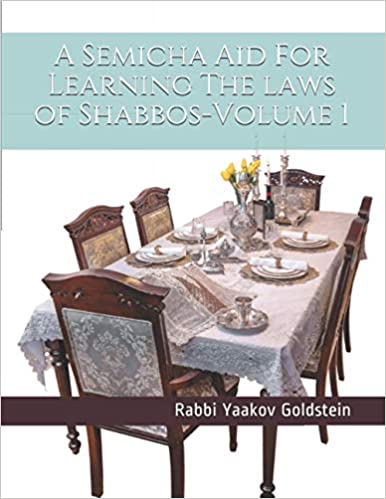

To purchase this Sefer, click here
4. Which materials are considered to add heat?[1]
The following are materials which add heat [whether they are wet or dry]: Waste of olives and of sesame seeds [that is left] after their oil has been removed, and fertilizer and salt and lime and sand[2], whether they are wet or dry [they add heat].
The following add heat only when they are wet: Straw and sediment, which is grape waste [that is left] after their wine have been removed, and Mochin, (which is a general term for any soft material such as cotton and strings [made] of soft wool of an animal, and the scrapes of worn out clothing) and herbs, when these four materials are moist[3] [they add heat], even if they are wet with cold water which fell onto them. [See Q&A]
The following materials do not add heat: However, all types of garments and fruits and feathers of all birds and thin residue of flax[4] and sawdust of carpenters, and skins whether they have been processed or not processed, and the fleece of wool[5] do not add heat in any situation.
Insulating with ash:[6] Ash which does not have coals mixed into them, even if it is hot, does not add heat.
If one insulated in this ash a pot from before Shabbos, and on Shabbos one found mixed in it a few fiery coals surrounding [the pot] or underneath it, [nevertheless] the food is not forbidden after the fact, being that the insulation was done with a permissible material.
Insulating with stones:[7] It is permitted to insulate with stones, from before Shabbos, even though they add heat, as it is extremely uncommon to insulate with stones, being that they break the pot, or they ruin the food, and anything that is not common the sages did not decree against. However, something that at times is used to insulate in, even though it is not so common, [nevertheless] the Sages decreed not to insulate in it if it adds heat. [See Q&A]
Insulating with stones on Erev Shabbos which is Yom Tov[8]: When Yom Tov falls out on Erev Shabbos, it is forbidden to insulate hot food for Shabbos with stones, as it is forbidden to gather stones on Yom Tov, as this is similar to [the prohibition against] building [on Shabbos and Yom Tov].
However if one has nothing else [available] to insulate with other than the stones, then it is permitted for him to insulate with them, as [by doing so] he is not making a permanent structure, but rather a temporary one, which is only Rabbinically forbidden to be done, and due to the [Mitzvah to] honor of Shabbos the Sages did not decree [in this situation, against using the stones to insulate], being that [in this case] it’s not possible for him to insulate in any other way.
|
Summary-Examples of materials that add heat: A. The following always add heat: 1. Olive waste 2. Sesame waste 3. Fertilizer 4. Salt 5. Lime 6. Sand
B. The following add heat only when wet: 1. Straw 2. Soft yarn or other pieces of cloth 3. Herbs
C. The following never add heat: 1. Garments 2. Fruits 3. Feathers of all birds 4. Thin residue of flax 5. Sawdust of carpenters 6. Skins whether they have been processed or not processed. 7. The fleece of wool. Q&A What is the status of blankets and pillows?[9] They do not add heat.[10] However if they have cotton inside of them, it is proper to avoid using them if they are wet, even though that the actual cotton will not touch the pot.
May one insulate on Shabbos with materials that do not add heat and are never commonly used to insulate with?[11] Logically speaking there should be no differentiation between material that adds heat and that does not add heat in this regard, as “anything that is not common the sages did not decree against.” Nevertheless, the final ruling requires further analysis.
May one insulate with a dry towel? Yes. However, it is only allowed if the food is off the fire, blech or electric plate.
May one insulate with a wet towel? Yes.[12]
|
____________________________________________________
[1] Admur 257:5
[2] “Thus, it is forbidden to insulate [food] in them even from before Shabbos due to a decree [which was decreed because if this were to be allowed then] one may come to insulate with embers as explained in chapter 257 [Halacha 1].” [318:7]
[3] The Mishneh Berurah however learns that only if the following materials are wet from their own moisture, do they add heat. However, if they simply get wet, then they do not add heat.
[4] When flax is pressed there are small pieces of residue which fall from it.
[5] This refers to the entire sheet of wool as it is when it is first cut from the animal, before pieces of it are broken off to process. [see Rashi Shabbos 48a.]
[6] Admur 257:6
[7] Admur 257:7
[8] Admur 259:6
[9] Shabbos Kehalacha Vol. 2 page 26
[10] M”B 257
[11] Shabbos Kehalacha Vol. 2 page 26
[12] This is permitted as only wet pieces of cloth add heat and not wet clothing.


Leave A Comment?
You must be logged in to post a comment.